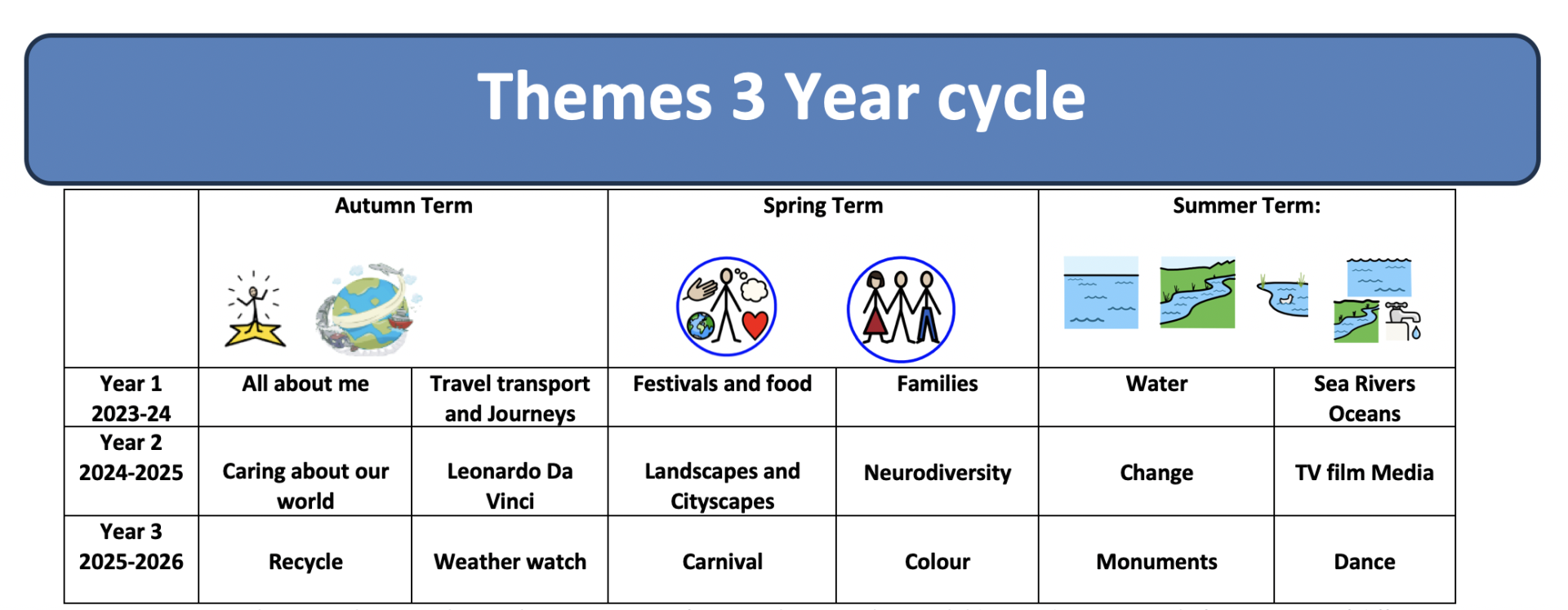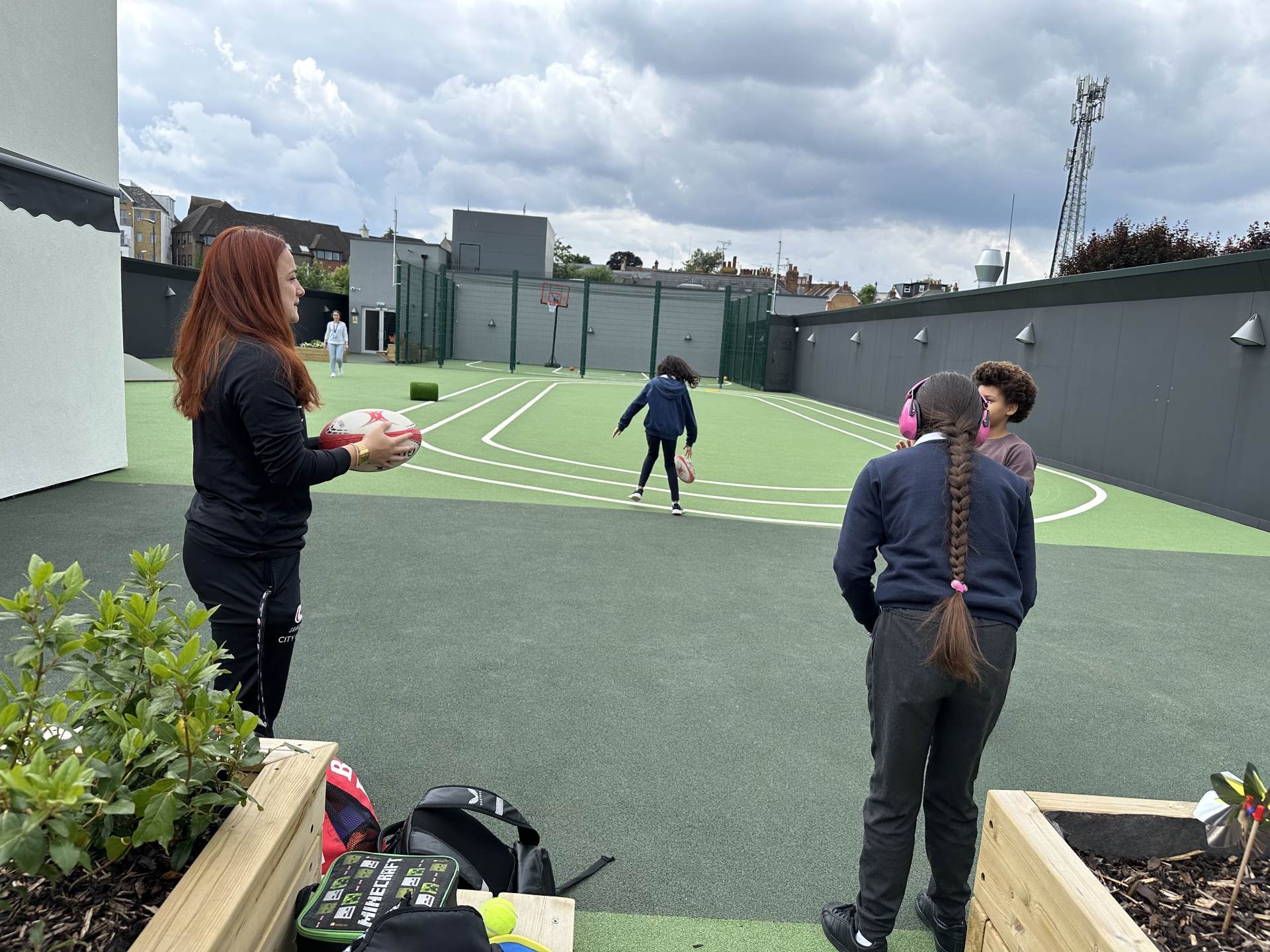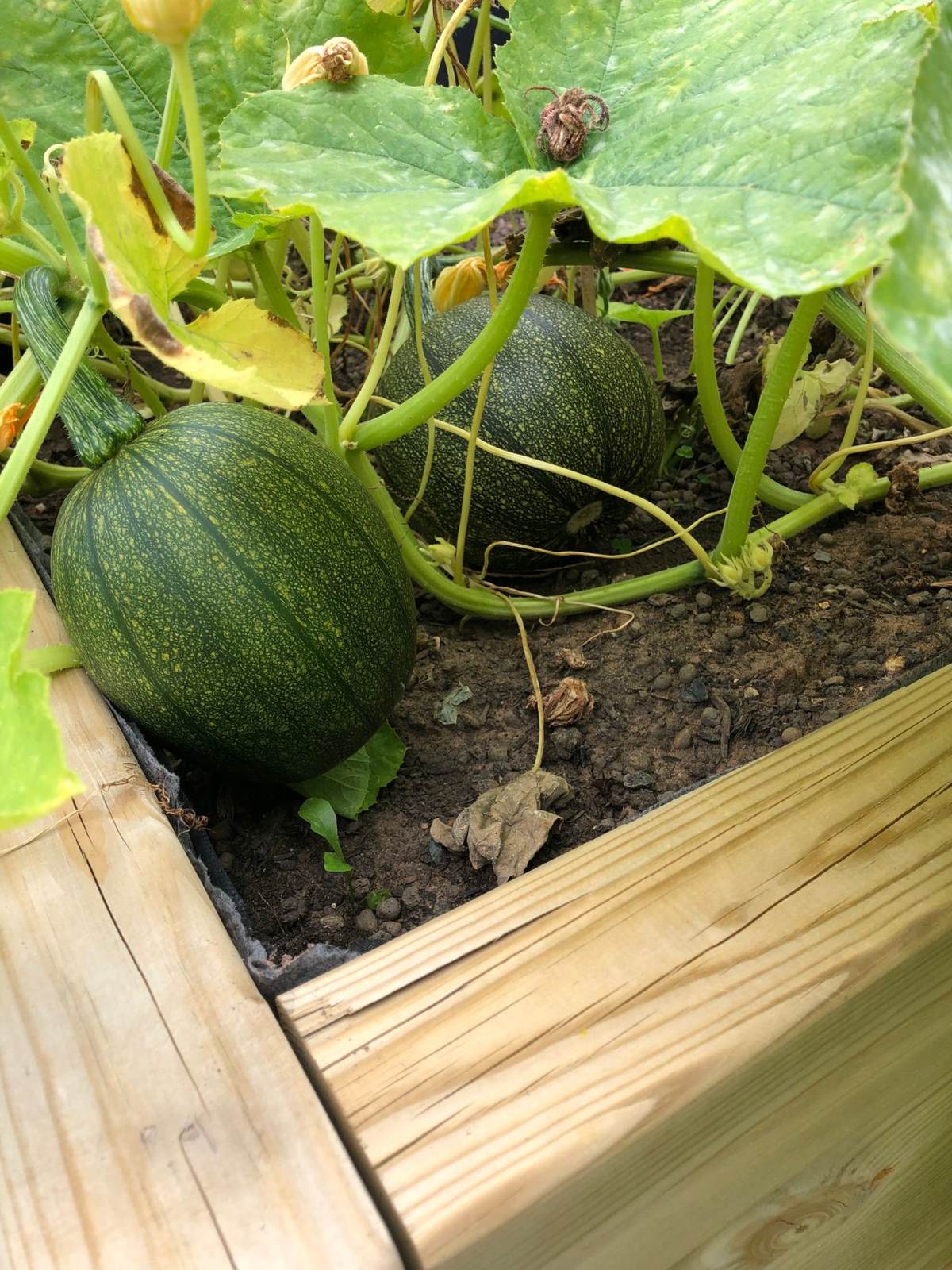Secondary Department
Our secondary school classes have a form teacher responsible for teaching most of the curriculum. These teachers do however have further subject specialisms in English Literature Music, Art and Science teaching across the secondary phase. Other subject specialist teachers deliver Computing, Drama, Forest Schools, Food Technology, Humanities, Personal Social and Health Education and particularly Relationships Education. There are 6 classrooms in Secondary and Post 16. All pupils are taught in classes of 8 pupils, all pupils supported by teaching assistants. Pupils study an adapted National Curriculum at a level matched with their academic attainment and using a teaching methodology that is suitable for autistic individuals.
We have a link with QE Boys school for a reverse inclusion and mentoring program. Sixth form pupils from QE Boys join our KS4 cohort for specific mentoring in areas of academic strength to support coaching through externally assessed qualifications. Below is a table that outlines the Entry Level, GCSE pathway we offer in Core and Foundation subjects of the National Curriculum.
Each child will study at the level they are ready for, regardless of their age to ensure challenge and rigour within each learning pathway. Our aim is for our pupils to achieve in appropriate examinations that may include Unit Award Schemes, Entry Level qualifications GCSEs and BTEC qualifications that can be studied well into sixth form. Pupils have the opportunity to study a broad set of subjects and qualifications that include Level 3 BTECS or vocational pathways. Each child and young person at the Windmill School has a 'curriculum for life' which is highly personalised for them to learn at their own pace and passions. They will learn traditional academic curriculum alongside life skills and through enrichment sessions will develop the skills including life skills to prepare them for the next stage of their education and employment.
|
Core subjects |
Foundation subjects |
|
English Entry Level 1-3 GCSE English Language GCSE English Literature Mathematics Entry Level 1-3 GCSE Mathematics (9-1) Science Entry Level 1-3 GCSE Combined Science (Trilogy) |
Humanities Entry Level WJEC ( with co-teachability with GCSE History and Geography)
Hospitality and Catering Level 1/2 Vocational Award Art and Design BTEC Art and Design BTEC Digital Media GCSE
|
We currently offer a transition year for Y6- Y7 phased transfer pupils coming in from Primary mainstream schools, where all pupils have a blended Primary to Secondary model to enable a gradual transition towards sessions with subject specialist teachers.
Innovative and individualised methods of adapting the curriculum, utilising pupils’ strengths, and interests, are essential for ensuring school feels accessible and experienced positively. Many of our pupils have had an incomplete experience of primary school, often with very poor attendance due to their persistent levels of anxiety that affected their wellbeing. They may have masked abilities in their former school setting or indeed since early childhood, as more complex social demands begin to exceed abilities or coping strategies.
Our pupils may have developed an increasing recognition of difference in terms of their peers’ abilities, interests, and characteristic personalities. It is likely pupils may recognise qualitative differences between themselves and non-autistic peers which may contribute to secondary mental health difficulties associated with low self-esteem and anxiety.
Whilst the Windmill School offers a supportive, compassionate, and responsive environment we acknowledge the range of compensatory and adjustment strategies our pupils may have developed impacting them in terms of their sense of self.
A slow integration into a highly autism specific school setting may take time to absorb for our pupils. We are of the view those who are engaged in their learning, and who are active participants in decisions about their learning, are more likely to be confident learners in the short-term and the longer term. Themes are used across the school to extend pupils interest across all subject areas and allow pupils to be able to link subjects, concepts, and skills together in a practical and meaningful way. Throughout the academic year, pupils will be engaged through further whole school themes.

It is important to note that we only offer a thematic approach to those pupils who are developmentally working below the standards in all core subjects. Some pupils joining from a mainstream ARP have been working in a more highly adapted and personalised way and enjoy thematic learning for some of their curriculum particularly Humanities subjects and PSHE.

Physical Education is further complemented by Saracens Sports Foundation who provide a multi-skills inclusive session that offers a range of structured activities including, tag rugby, circuits, archery and dance.
Pupils work with an increasing number of subject specialists as the school grows as they progress towards externally assessed qualifications. Pupils follow bespoke curriculum pathways to achieve a range of academic and vocational qualifications that are suitable for their learning profile and interests.
A separate and distinct offer of The Windmill School is the enrichment curriculum programs that extends pupils passion and interest beyond what is ordinarily available in a mainstream school. Whilst we offer all the core National Curriculum subjects English Maths Science PSHE Computing and PE we offer informal enrichment curriculum opportunities in creative writing, drama, multi-skills, animal assisted therapeutic programs and music composition provided by a range of specialist external providers including the Saracens Sports Foundation, Born Free Foundation Community Focus Articulate and Barnet Arts Education Trust (BEAT).
Specialist rooms
At our Moxon Street site, Art, Music, Drama, Food Technology, Science and PE are taught in specialist rooms to allow for the use of a wide range of equipment. We also have purpose-built PE hall and another versatile hall which is used as part of the dining area and can be used as alternative teaching space. Each of these subjects will be taught by our specialist teachers who teach across the school.


Learning outside the classroom
Our classrooms at Windmill have access to green space for exploring nature or as part of our science curriculum. The ease of access from the classrooms also offers a natural respite from the classroom for a sensory break in a safe secure space. Forest Schools takes place at the nearby King George Fields on Hadley Wood Common

Breaks

